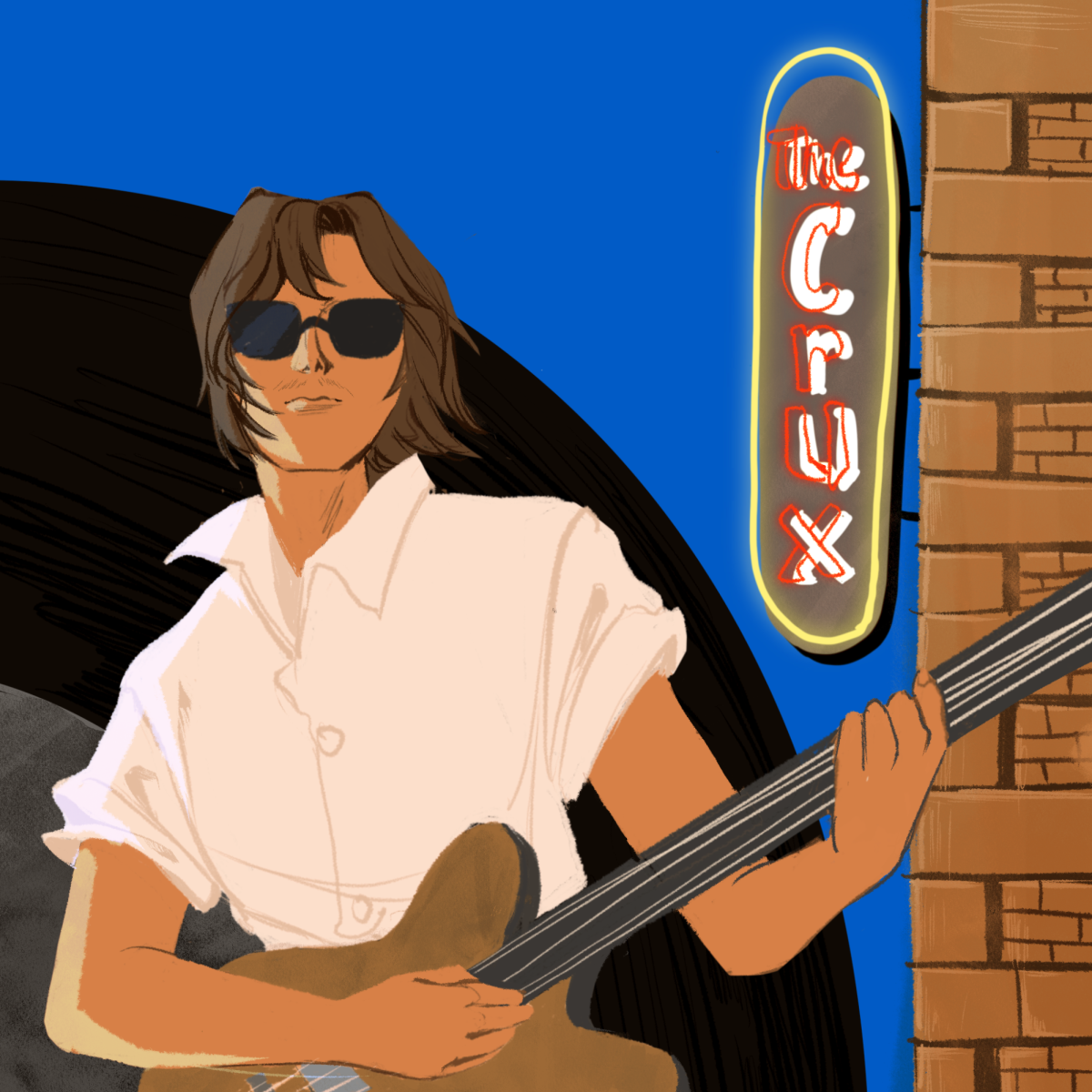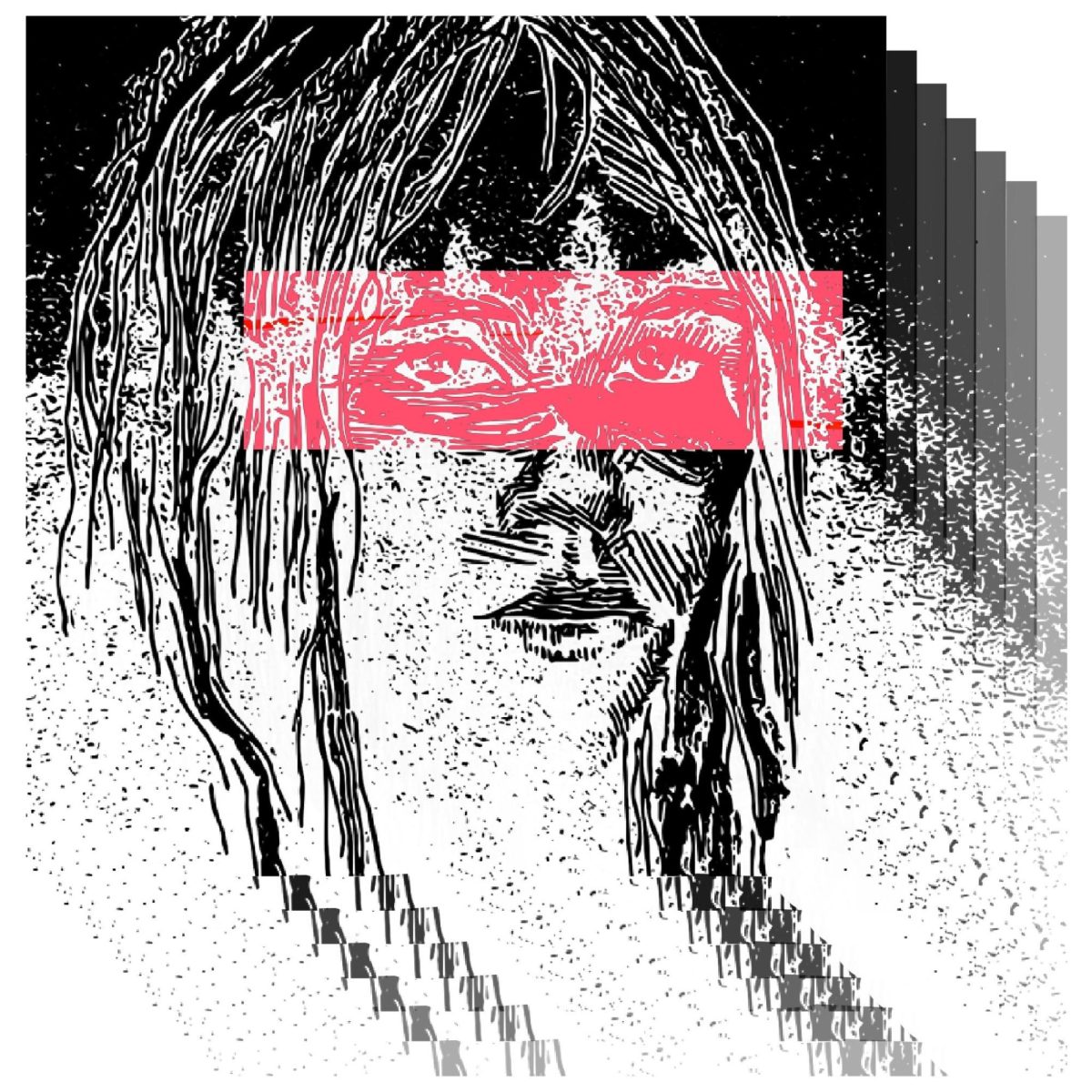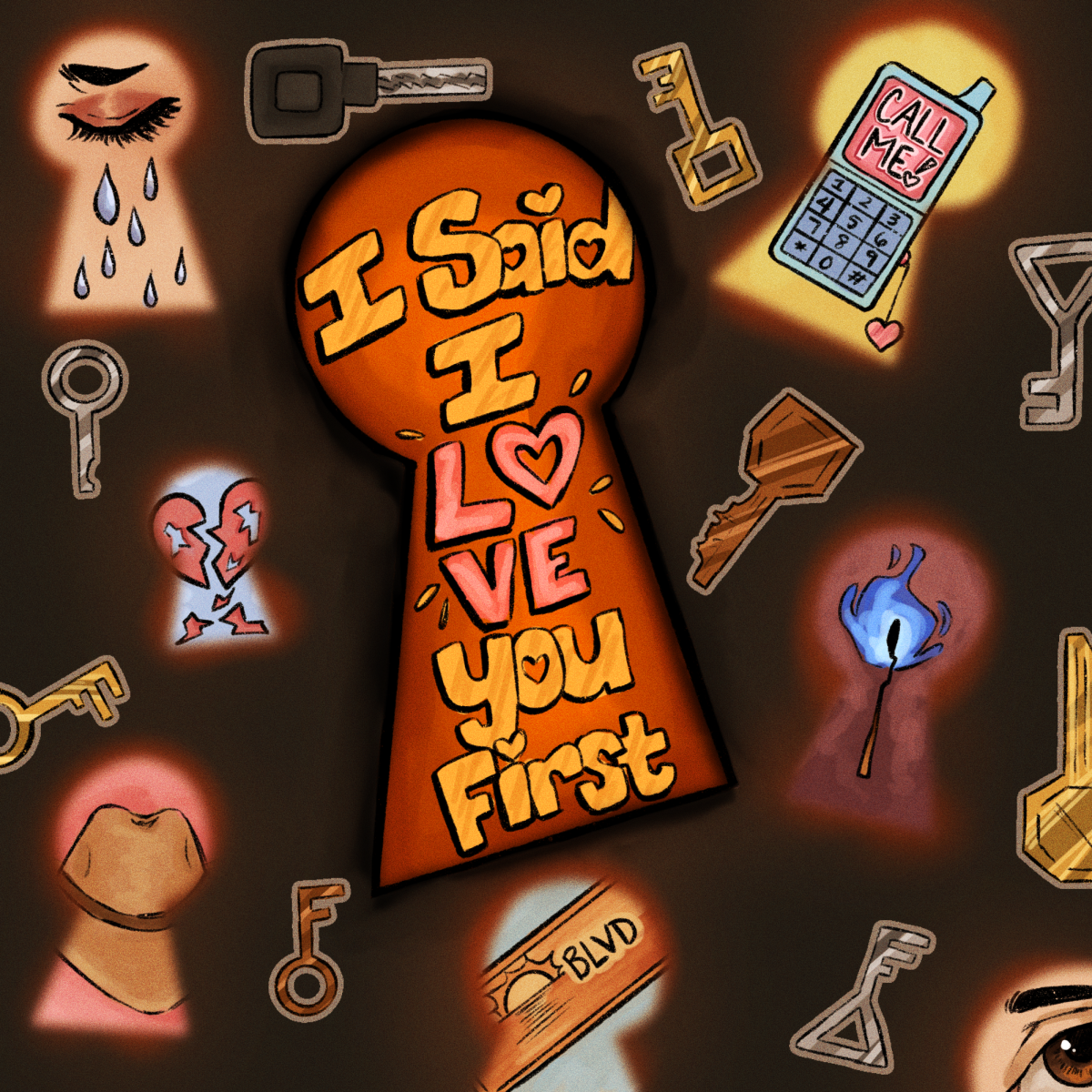With each nimble stroke, strum and pluck, the strings buzzed, sounding an ethereal melody into the small living room. Leaned against the shoulders of their players, music junior Meredith McCay and nursing junior Molly Cook used their grandiose, six-foot harps to produce a magical, idyllic sound. Between the mysticism of the harps and the passion and talent of the two close friends, the excitement surrounding the harp duo, Seven Pedals, is palpable.
Named in homage to the seven pedals on a harp, McCay and Cook decided to break away from their classical training and play harp renditions of contemporary top hits after pushes and support from professors, music colleagues and friends.
Though the pair has just started playing at local coffee shops this summer and recently released their self-titled EP, they have already garnered attention — especially since most people have never seen or heard the harp played live.
With 47 strings pulled by an arching neck that gives each cord its pitch and a soundboard that controls the warmth and power of the strings, the harp is often described as a naked piano.
“It’s like a guitar-piano hybrid from another universe,” Cook said.
Often complete with an ornate column and a hand-painted decal of laurels, the unique shape of the instrument elicits curiosity. Placed in the middle of the duo’s living room is a pair of concert grand harps, and they are the center of attention.
Atop a black wooden shelf, next to a nearly empty container of pretzels, is the tip jar the duo uses at coffee shows. Harp Concerto Op. 182 by Carl Reinecke lies open on page 17 on a music stand. Beside it is loose-leaf sheet music filled with McCay’s neat composition of 16th notes.
The two roommates met in the Butler School of Music during their freshman year. McCay, who was an engineering major at the time, was taking private harp lessons with a music professor and was asked to perform the piece Cook needed to learn.
“I never played it as well as she did,” Cook said. But the encounter foreshadowed a well-matched musicianship.
Since McCay comes to the music school only late at night to practice, the two did not cross paths often until both played in UT’s harp ensemble. There, their friendship grew.
Even after the two swapped places — McCay is now a music performance major and Cook is a nursing major, their passion for the harp has made their partnership prosper.
Cook, who is the vocal power of the duo, is as vibrant and fiery as the curly tussles of her red hair. Not afraid to shamelessly sing along to Avril Lavigne’s “Complicated,” Cook is the gas pedal that pushes Seven Pedals to defy norms. McCay, on the other end, is responsible for all the fancy finger-work, and her finesse and calm allure captures the classic nature of the harp.
Since neither has played any other instrument professionally, both agree it’s tough to compare the difficulty of the harp to other instruments. Cook said music theorists have said the harp is one of the hardest to instruments to learn because there is a series of mechanics that goes into playing it.
“You throw in the fact that it has pedals, you’re using all four limbs at once, you’re reading essentially four lines of music at once, and you’re playing all of the notes, not just one note at a time like some instruments,” she said.
The toll of mastering the harp, like with any instrument, has left its wear and tear on the players. Tough, calloused blisters cover the tips of the women’s fingers, and sometimes they even bleed. Since McCay and Cook are both petite, the extra power to pull the strings and the weight of the 100-pound harps against their knees and shoulders has tensed their backs, shoulders and arms. Constant stretching and good posture are mandatory to protect the longevity of their musicianship.
McCay said she wants to play the harp professionally but hopes to teach as well.
“I switched to music because I wasn’t feeling fulfilled with engineering,” McCay said. “And I just really love playing the harp in a way I don’t love doing anything else.”
McCay, who plans to be nurse, said she decided to change majors because she can easily be a nurse who plays the harp but never a harpist who is a nurse.
While there are few harpists who are on the cusp of mainstream, Cook and McCay said they are appreciative of anyone who brings attention to the harp, such as singer-songwriter and harpist Joanna Newsom.
“Joanna Newsom is a successful woman, who has helped make the harp more accessible to listeners,” McCay said. “We applaud and appreciate her.”
Newsom, in fact, has played Cook’s harp.
“Joanna actually rented my harp last time she was in Austin,” Cook said. For Newsom’s performance at the Paramount Theatre and at ACL Live, Cook tuned the harp for the indie folk harpist and got to go backstage and see how a show is set up. “If you watch the taping, that’s my harp,” she said.
The harp is the only stringed instrument on which the strings run perpendicular to the sounding board, Cook explained, which give the harp its distinct, ethereal sound.
“There is no bow between hand and string,” Cook said. “A harpist is essentially in the most direct, intimate contact possible with each vibrating string. Not to mention, the harpist holds the instrument against his or her body as they play. So apart from the sound, which is special to hear, the nearness to the sound makes it special and satisfying to play.”
Printed on Monday, November 21, 2011 as: Harp duo goes contemporary



















